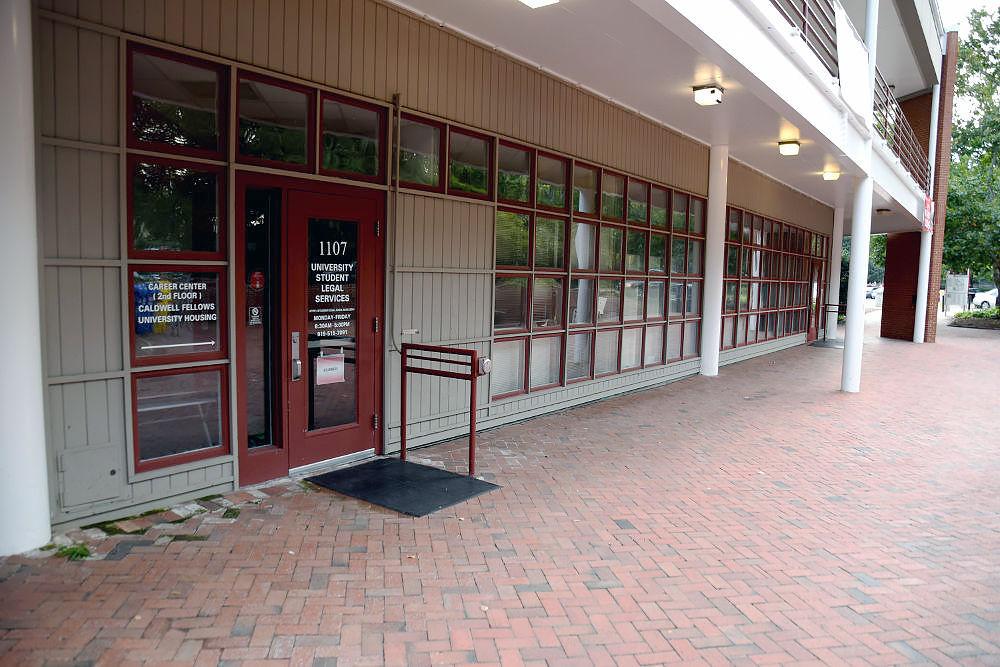NC State’s University Student Legal Services (USLS) is a free-of-charge legal counsel on campus available to students seeking advice or help in a variety of legal matters.
Pamarah Gerace, staff attorney and director of USLS, clarified that while USLS receives funding from the university, it is not directly connected to the university, nor to the state.
“Our office is a 501(c)(3) non-profit,” Gerace said. “We’re not employees of the university or the state of North Carolina; we are employees of the non-profit. We have a contract with the university that allows us to represent students.”
Michael Ferrante, staff attorney, said that USLS serves a wide array of needs.
“It really depends on [students’] needs,” Ferrante said. “It’s a general practice law firm. It’s a launchpad for any kind of legal issues they might have.”
While USLS can serve a variety of needs, Ferrante said the office frequently sees students come in for advice on things like housing leases, traffic tickets and employment contracts.
“The easiest example would be a traffic ticket.” Ferrante said. “Someone comes in and we can give them advice on what that means and how it will affect them. Not just kind of that immediate ticket right there, but how they might be affected by insurance down the line, things they wouldn’t normally think about based on their driving record.”
According to Ferrante, USLS can handle civil cases, but has some limitations. For instance, USLS’s attorneys do not represent students in criminal cases.
“We can do civil litigation, and we do represent students in that. We’ve done everything from getting them on paid wages to disputes with people they’ve done work for, landlord-tenant [disputes],” Ferrante said. “I have filed actions for students in the civil court, but again, it has to be civil. For criminal we can provide advice.”
Gerace offered further explanation for some such limitations.
“We can’t represent a student versus student, that’s a conflict of interest; no attorney could,” Gerace said. “There are cases where drugs come up, and they’re in an apartment. Everyone’s partaking, but nobody wants to claim possession, it’s an immediate conflict between all the people living there, who’s responsible and who’s gonna turn on who? No attorney would be able to represent more than one of those people.”
Some of these limitations date back to regulations established by Student Government in the 1980s, Gerace said. She also said that these regulations can change over time.
“I think what the students were trying to do is come up with things that students need help with that attorneys don’t provide free of charge,” Gerace said.
Civil litigation, for instance, is normally very expensive, Gerace said. She also explained that not representing students in court frees staff to handle other needs of students.
Ferrante also spoke about USLS’s ability to settle disputes between two parties through methods of restraining orders and cease and desist letters. The latter is effectively a formal, legal declaration to do something from one party to another, and the former sets legal consequences if a person comes in contact with another.
Further information on what resources USLS offers to students can be found online.








